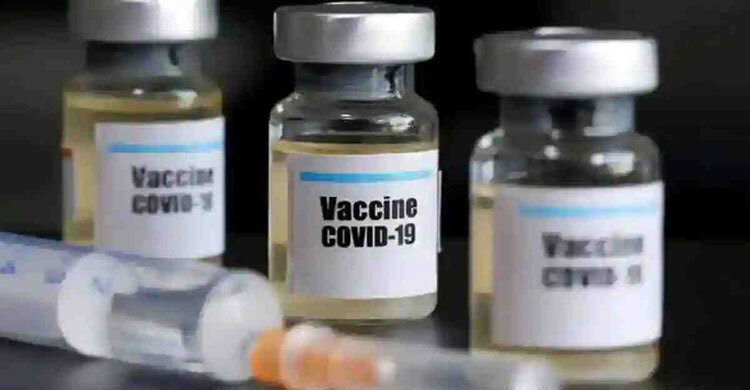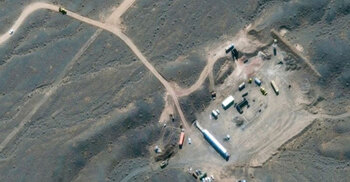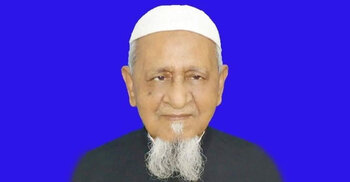Covid-19 vaccines: Bangladesh has ‘limited choices’

As three Covid-19 vaccines look ready to be rolled out soon, now one question is crossing the public mind where actually Bangladesh is in the line to have one.
Many health experts think that things are getting complicated for Bangladesh to get one anytime soon as the vaccine developed by AstraZeneca and Oxford University has triggered controversies, reports UNB.
They said Bangladesh has been mainly expecting to have the AstraZeneca-Oxford vaccine through the Serum Institute of India (SII) since the two other vaccines of Pfizer-BioNTech and Moderna are unsuitable for the country due to preservation-related problems.
Unlike the two, the AstraZeneca vaccine does not have to be stored at ultra-cold temperatures, making it easier to distribute in developing countries.
Scientists have, however, raised a question about the efficacy and results of the experimental Covid-19 vaccine, and AstraZeneca and Oxford University have also acknowledged a manufacturing error.
On November 5, Bangladesh signed an agreement to get 30 million doses of the AstraZeneca’s vaccine from India's Serum Institute once it gets available, but the UK becomes the first country to approve Pfizer's Covid-19 vaccine and its first shots to be rolled out next week.
Under the circumstances, local health experts said Bangladesh should now focus on other preventive measures like ensuring cent percent use of masks and encouraging people to follow health hygiene rules to contain the deadly virus alongside continuing strong efforts to have any other effective vaccine.
More homework needed on vaccine
Contacted, Dr Be-Nazir Ahmed, former director (disease control) of the DGHS, said Bangladesh has signed the deal with Serum to buy AstraZeneca’s vaccine, but there are now many questions about the trial results of the vaccine candidate.
“There’re also controversies over the effectiveness and trial process of the vaccines developed by China and Russia. So, we’ve to carefully observe the developments relating to the vaccines around the world,” he said.
The vaccine expert said though the two American experimental vaccines look highly effective, those are unsuitable for Bangladesh due to temperature-related problems. “So, it’s true that Bangladesh’s vaccine fate will hang in balance if the AstraZeneca’s vaccine finally fails to get approval.”
In this situation, Dr Be-Nazir said, Bangladesh needs some solid homework on the vaccine. “We need to have a vaccine committee and some scientific ones to evaluate the developments over the vaccine and assess which one is suitable for Bangladesh. We need to check our existing cold chain and make it ready to preserve if any suitable vaccine is found.”
Vaccine approval a long process
Former World Health Organisation (WHO) Regional Adviser Muzaherul Huq said the vaccine which has efficacy, quality and safety is still not found. “Some potential vaccine candidates are still at the trial stage.”
Once the trials are completed, Muzaher said, a committee of WHO will examine whether that have been conducted systematically following the proper guidelines and scrutinise all the findings of the trials.
“If the WHO committee finds everything fine, then they’ll recommend for the approval of a vaccine. Later, the CDC of America, China and other regulatory bodies will approve it and give permission for marketing worldwide. But it’s still uncertain when these processes will be completed as no candidate has still reached the approval stage,” he said.
The health expert thinks Bangladesh should not be in a hurry regarding making any deal with any vaccine candidate until the approvals by WHO.
Modernising Institute of Public Health
Dr Muzaher said Bangladesh can take preparation for manufacturing any successful vaccine. “If any country wants to manufacture a vaccine, it needs to ensure the good manufacturing practice and fulfil the conditions of the WHO.”
He said the Institute of Public Health (IPH) can apply to the WHO for manufacturing the vaccine in Bangladesh as Serum did it to manufacture AstraZeneca’s vaccine. “If WHO gives permission, IPH can sign a deal with any vaccine candidate to manufacture their vaccine here.”
The expert said the government should now take immediate steps for enhancing the capacity of IPH and modernise it so that the country can produce the vaccine.
Determining Vaccine Demand
Dr Muzaher said Bangladesh still does not know how many doses of vaccine the country initially needs only for lack of any survey.
“We need to conduct a national-level serosurveillance survey to know the actual data about the exposure levels and the presence of antibodies in people,” he added.
Dr Muzaher continued: “We need the rapid antibody test to see the level of immunity people have. It’ll help get an idea about the required doses of vaccine and set the priority for its justified distribution.”
He said the government should take a strategy to give the vaccine first to those who lack antibody.
Dr Be-Nazir also echoed Muzaher saying it is now necessary to know how much people of the country have so far been infected with the virus through a rapid anti-body test or a survey.
“We need to decide whether we’ll give the vaccine to those who have already beat the virus,” he said.
“I’m also a Covid survivor. I won’t take the vaccine at the initial stage. I’ll first observe the results of the vaccine as I’ve the antibody. I don’t know how the vaccine will work in my body. So, I’ve to wait and see the situation before taking the vaccine,” Be-Nazir observed.
Yearly dose may require
Prof Dr Mohammed Atiqur Rahman, the treasurer of BSMMU, said “We should understand that vaccine is not a treatment, rather a preventive tool. We still don’t know how long the vaccine can work or prevent the virus.”
He said different studies and reports suggest that the corona vaccine will be similar to influenzas’ that has to be taken every year.
Dr Atiq said a vaccine is the best way to prevent the virus. “But we won’t be able to completely eliminate the virus through the vaccine. There’s a vaccine of influenzas, but still many people die of the disease every year in America and many other countries.”
He said Bangladesh should now give the main focus on other preventive measures alongside remaining active to get an effective and suitable vaccine.
“In the absence of a vaccine, I think, masking up is the best option to prevent corona infections. The government should strictly enforce its directive-- no mask no service,” Atiq added.







